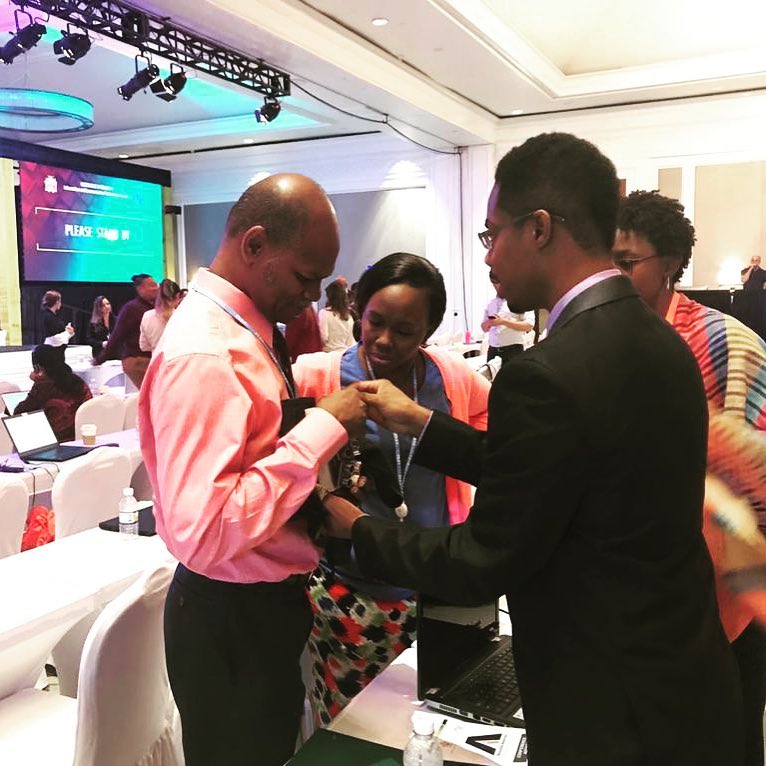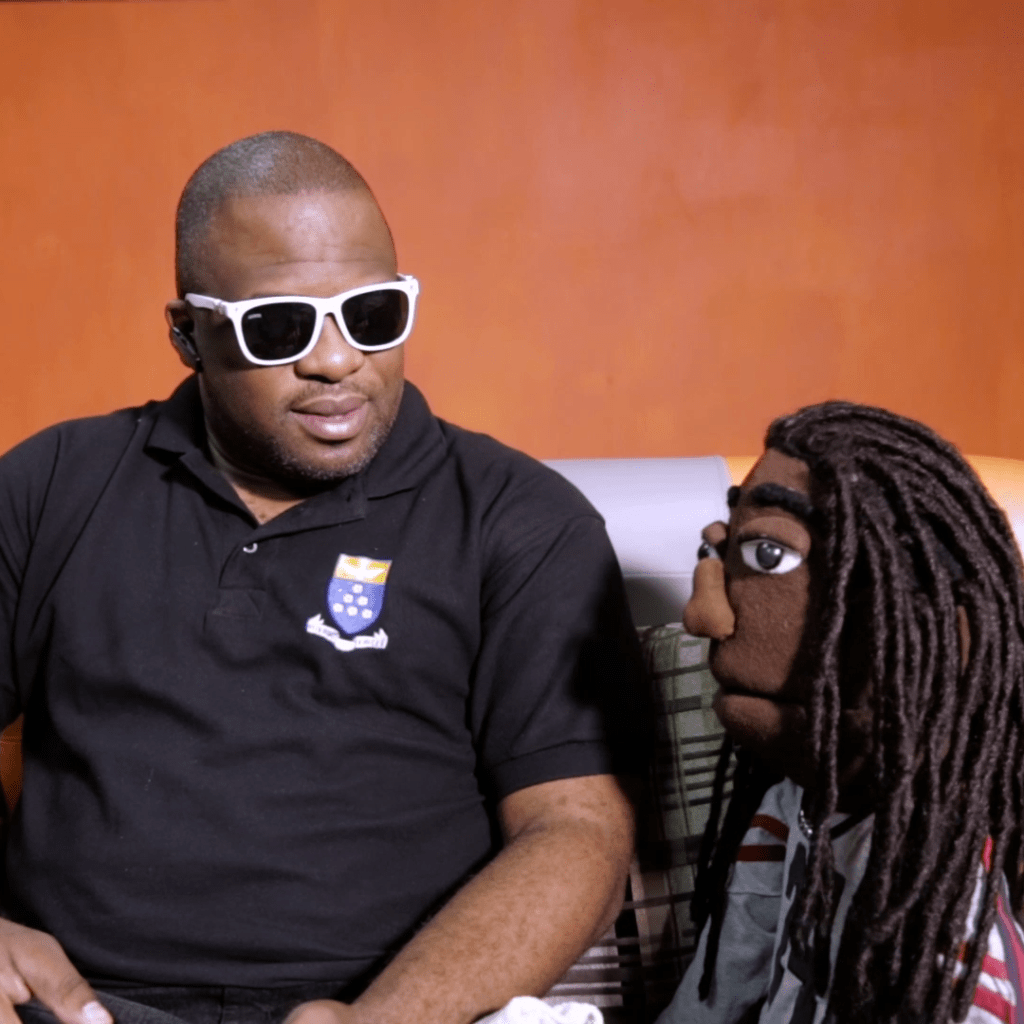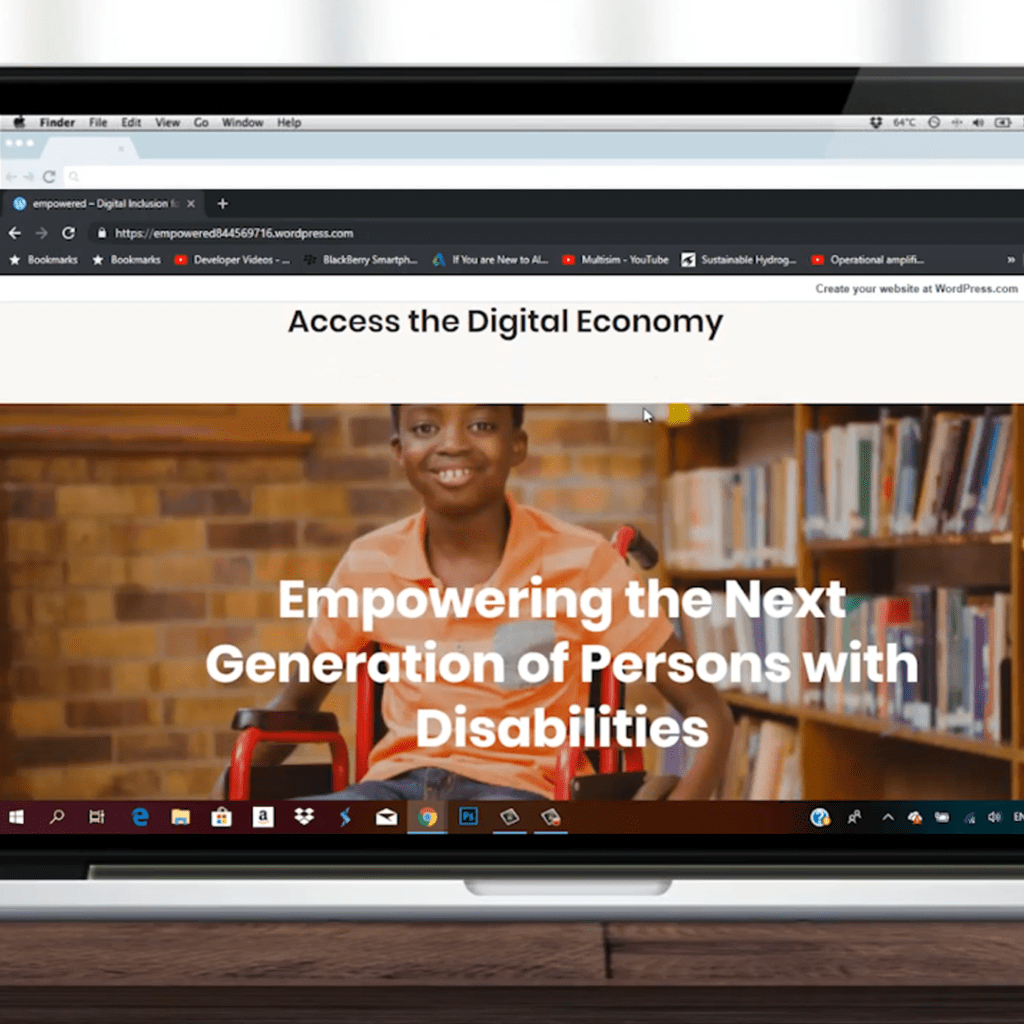Start a Project
Let's work together to foster greater digital inclusion of persons with disabilities by working on projects which provide greater access to information, education, employment and other opportunities.
Our Project Portfolio

MobiAssist
Visually impaired persons face several challenges while navigating in their daily lives. Many of them are forced to rely on family members or care givers to perform daily functions such as walking, identifying obstacles, operating doors, and appliances etc. The problem of navigation involves knowing their exact location, planning a path to their destination, detecting obstacles along the way, avoiding collisions and adapting to a changing environment.
The MobiAssist is an assistive device designed for persons living with a severe visual impairment to navigate independently without the use of their cane. It utilizes a sensor array and microcontroller board together with the computing power of the user’s mobile device to detect the presence of obstacles within their environment, mapping out a 10ft x 10ft space to the front and sides of the user and up to the height of the user. This information is then processed by the MobiAssist’s operating system software in real time to provide feedback to the user about obstacles in their way and is communicated to the user in the form of audible speech commands and tactile vibrations.
We're looking for impact investors
There are an estimated 39 million people around the world who live with a severe visual impairment. Most existing urban environments were not designed using modern accessibility principles and consequently many visually impaired and blind people experience tremendous difficulties in travelling even short distances in these public spaces. Although a few blind and visually impaired people are confident and experienced travelers, significantly greater numbers of blind and deaf blind people feel unable to go out without a guide. The development of the MobiAssist will support independent travel by blind, visually impaired and deaf blind people and will significantly improve their quality of life. Download our MobiAssist pitch deck to learn more about how your investment can make a difference.
Blind Way Forward
We live in a highly visual world, in which we are constantly bombarded with visual information, from billboards to electronic media to simply going about your daily routine. It is therefore not surprising that the loss of vision, whether it is sudden, as in an accident, or gradual, through degenerative conditions such as glaucoma, can leave you wondering how you will cope.
The Blind Way Forward is a practical guide to coping and thriving with visual impairment. The organization focuses on serving several populations:
1) adults who have recently received a diagnosis or prognosis of blindness or acute visual impairment,
2) persons already living with vision impairment but who have been limited due to a lack of information, or who have become disillusioned,
3)the families, friends, and employers of persons with visual impairment, and
4) allies or other interested parties.

Schedule a Blind Way Forward Workshop
The objectives of this session are to: educate the audience of the various emotional stages which persons with a visual impairment go through such as denial, anger, bargaining, depression and acceptance; learn about the various forms of assistive technologies and accessible ICTs which can improve the quality of life for visually impaired persons by creating opportunities for employment and education; and to understand the policies and organizations that are established to advocate, train and provide support.

Empowered
With more than one billion people in the world living with disabilities, it’s vital that technology reflects the diversity of the users to foster digital inclusion for all. There are at least 50 million disabled people in Latin America & the Caribbean (LAC) or approximately, 10 percent of the region’s population. About 80-90 percent of disabled people in LAC are unemployed or outside the workforce. Most of those who have jobs receive little or no monetary remuneration.
In addition, technologies such as the internet, software and apps, mobile devices and services, television, and emerging ICTs have significantly improved the inclusion of persons with disabilities in all aspects of society; however, the current situation in the LAC region is that persons with disabilities are at risk of being excluded from digital technologies and the opportunities they afford.
The Empowered virtual platform seeks to change this paradigm by enabling persons with disabilities to offer products and services online to employers and businesses. It will create opportunities for persons with disabilities to access employment and service provider contracts in the growing digital economy.
We're looking for impact investors
With more than one billion people in the world living with disabilities, it’s vital that technology reflects the diversity of the users to foster digital inclusion for all. There are at least 50 million disabled people in Latin America & the Caribbean (LAC) of which 80-90 percent are unemployed or outside the workforce. We are looking for impact investors who love helping others and are willing to contribute financially to our mission. Download our Empowered pitch deck to learn more about how your investment can make a difference.
Smartphone Workshops
Acting Corporal Marlon Parieaho, the country’s only completely blind active-duty police officer, has been blind for over 6 years, and conducted the training for iPhone users. Parieaho indicated that the features and apps were very important and a blind or visually impaired person must be competent with the assistive technology to be effective in the workplace.
“After I lost my sight I thought I had to leave my job. However, I learned that with the help of technology I can still do so much on my own and became more independent. If I had not become adept at computer and smartphone technology, I would not be able to continue working as a police officer.”
Parieaho continued, “With assistive technology visually impaired persons can have very fulfilling personal and productive lives. I’m a strong advocate of employment of persons with visual impairment because we can make a strong contribution to society and the economy.”

Schedule an ICT accessibility workshop
Ipsum Technologies in partnership with other disability support organisations train persons with disabilities, NGOs, private and public sector companies in the fundamentals of mobile, computer and web accessibility.